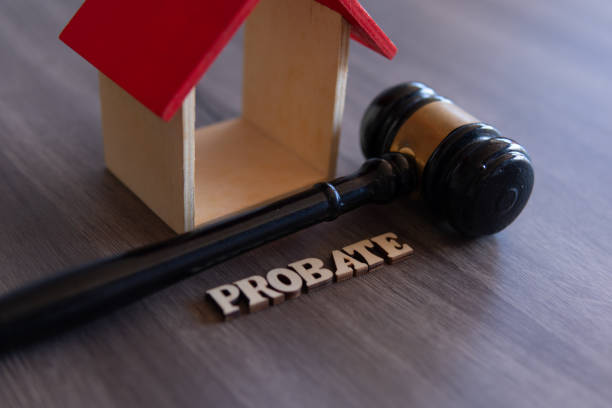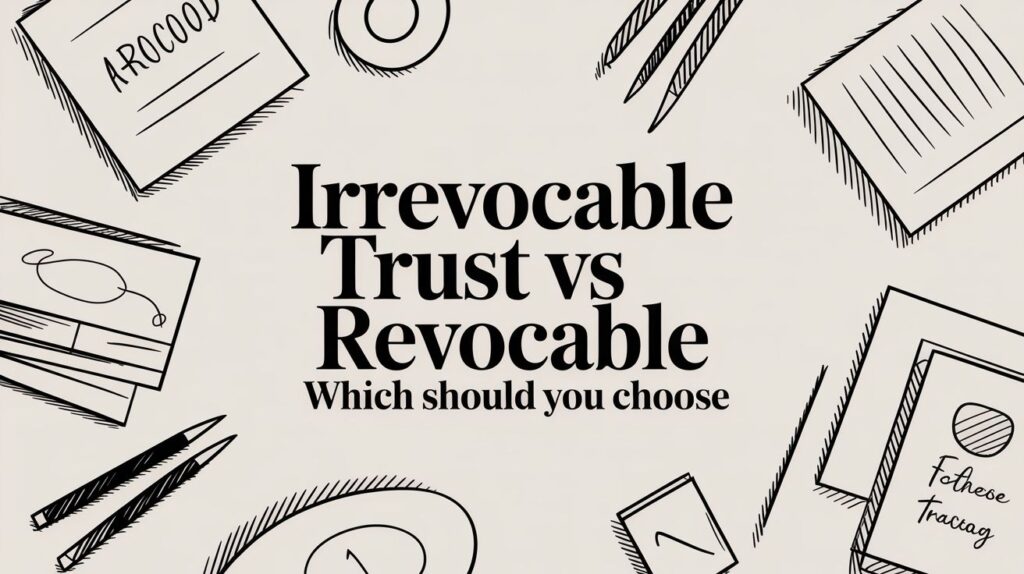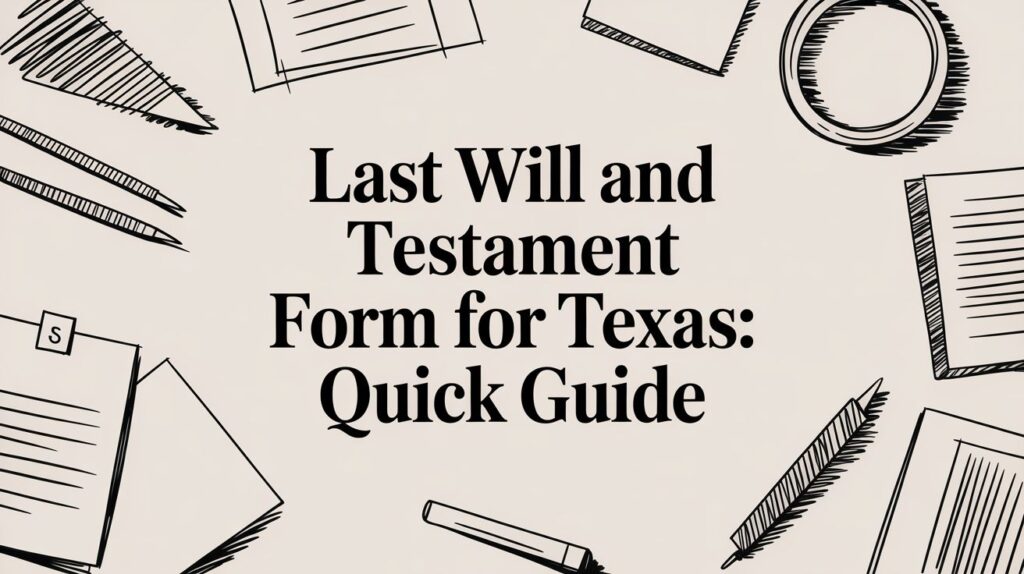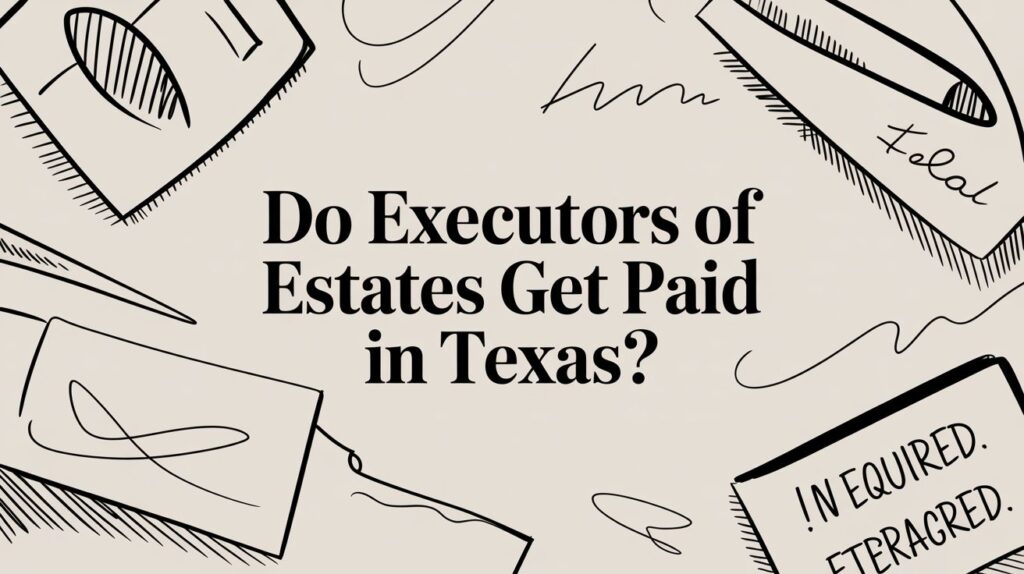When someone dies in Texas, their debts don’t simply disappear. While surviving loved ones may be busy mourning, the law is busy working. And one of its first orders of business is sorting out what happens to the debts left behind. For many families, especially those unfamiliar with probate law, this process can be filled with anxiety, confusion, and unanswered questions.
Does the family inherit the debt? What if the deceased had credit cards, a mortgage, or medical bills? Are spouses liable? What happens if there’s no will? The reality is that Texas law has a specific way of handling debts during probate. While it can be complex, it’s not as scary as many people think. Understanding what happens to a deceased person’s debt under Texas probate law is the first step to making sense of what may follow when a loved one passes away. This article explores how debts are paid, who is responsible, and what families can do to navigate this challenging process.
The Estate Becomes the Debtor

When a person dies, their estate becomes a separate legal entity. That estate, not the surviving family members, is now responsible for paying off the deceased’s debts. The estate includes everything the person owned at the time of death. This includes bank accounts, real estate, vehicles, investments, personal property, and more. In Texas, the probate process serves as a structured legal path to manage this transition. During probate, a court oversees the identification of all assets, payment of debts, and eventual distribution of anything left over to the rightful heirs or beneficiaries. But before anyone gets an inheritance, the estate must first settle what it owes.
The person responsible for managing this process is the executor, named in the will. If there is no will, the court names an administrator. This person is tasked with collecting assets, notifying creditors, and paying valid claims from the estate’s funds before distributing the remainder. This system is designed to protect both creditors and heirs. Creditors get a fair chance to recover what they are owed. At the same time, heirs are protected from being burdened by debts that don’t legally belong to them.
The Hierarchy of Debt Payment in Probate
Texas law doesn’t allow debts to be paid in just any order. Instead, the Estates Code outlines a strict hierarchy. This means that some debts must be paid before others. In cases where the estate doesn’t have enough to cover everything, lower-priority debts may go unpaid. At the top of the list are expenses related to the administration of the estate, such as court fees, legal costs, and executor compensation. These are followed by funeral expenses, medical bills from the last illness, and secured debts like mortgages. Credit card bills, personal loans, and other unsecured debts generally come later.
If the estate doesn’t have enough assets to cover all debts, the estate may be declared insolvent. In that case, only the highest-priority creditors are paid, and others may receive only a portion, or nothing at all. This situation, while unfortunate, protects heirs and relatives from being held personally responsible for unpaid balances.
Community Property Considerations
Texas is a community property state. This means that most assets (and many debts) acquired during a marriage are considered jointly owned by both spouses. This adds an extra layer of complexity when one spouse dies, particularly if there is substantial debt involved. In general, debts incurred by one spouse during the marriage are considered community debts, and the surviving spouse may be responsible for them to some extent, particularly if they are tied to shared assets. For example, if a mortgage was taken out during the marriage, the surviving spouse may need to continue making payments or risk foreclosure.

However, this does not mean that the surviving spouse becomes personally responsible for all debts. Texas law typically limits liability to the extent of community property and prevents creditors from pursuing the surviving spouse’s separate property. This is especially important in second marriages, blended families, or situations where only one spouse was the primary earner or borrower. What this ultimately means is that each debt needs to be evaluated individually, based on when it was incurred, who signed for it, and whether it was tied to any property. Probate courts take this analysis seriously and often require detailed accounting before approving any debt payments or property transfers.
What About Joint Accounts and Co-Signers?
While most debts die with the person unless secured by collateral or involving community property, there are exceptions. One of the most common is when a surviving family member was a co-signer or joint account holder. In that case, the surviving person does not inherit the debt. They are already equally responsible for it, and that responsibility continues even after the other person’s death.
This is particularly common with joint credit cards, auto loans, or private student loans. Co-signers agreed to be held accountable if the primary borrower could not pay, and death is no exception. The creditor can demand full payment from the surviving borrower or co-signer, regardless of what the deceased’s estate may or may not contain. The same is true for authorized users in certain circumstances, though creditors typically pursue only legally obligated account holders. It’s essential to understand the difference between an authorized user and a joint borrower. This is because the legal implications can vary greatly.
Secured Debts and the Risk of Foreclosure
Secured debts are those backed by collateral—property the lender can claim if the debt isn’t paid. In Texas, the most common secured debts include home mortgages, car loans, and sometimes certain personal loans.
When a person dies, the creditor does not automatically seize the property. Instead, the estate is given the opportunity to continue payments or pay off the debt entirely. If payments are not made, however, the creditor has the right to repossess or foreclose on the property, regardless of who inherits it.
This becomes particularly sensitive when surviving family members wish to keep a home or vehicle but cannot afford the remaining debt. In many cases, the best solution is for the heirs to refinance or assume the loan, but this depends on the lender’s policies and the financial strength of the heir. For families dealing with grief and complicated financial arrangements, these situations can feel overwhelming. Legal guidance and communication with the lender early in the process are often key to protecting assets and reaching solutions.
Debts in Insolvent Estates
Sometimes, the value of the estate is simply not enough to cover everything owed. In these cases, the estate may be declared insolvent during probate. When this happens, the court will apply Texas’s statutory payment priority to determine who gets paid and in what order.
Lower-priority creditors—often credit card companies and personal lenders—may be out of luck. They can file a claim, but if there is nothing left after high-priority claims are paid, their claim may be denied.
The heirs, however, are not liable for paying off the deceased’s unpaid debts out of their own pockets. Texas law protects heirs from inheriting debt. However, they may inherit fewer assets—or none at all—if the estate is overwhelmed with obligations.
Probate Without a Will: Intestacy and Debt
If someone dies without a will in Texas, they are said to have died “intestate.” In such cases, probate still happens, but the court follows Texas’s laws of intestate succession to determine who gets what. The court will appoint an administrator to manage the estate in much the same way an executor would if there had been a will.
From a debt perspective, not having a will does not change the obligation to pay valid debts. The estate must still go through the same probate process. The difference is in how assets are distributed after debts are paid. The intestacy laws will determine the heirs—usually a surviving spouse and children, or more distant relatives if no immediate family is found.
For those hoping to control how their assets are handled after death and minimize family disputes, creating a will remains one of the most effective tools. It not only allows for naming an executor and choosing heirs but also helps streamline probate and ensure debts are addressed promptly.
Avoiding Probate to Shield Assets from Debt
Some families consider avoiding probate altogether to keep certain assets from being used to pay debts. This can be accomplished through estate planning tools like living trusts, transfer-on-death deeds, and payable-on-death designations on financial accounts.
While not all debts can be avoided this way—particularly secured debts or obligations tied to community property—these strategies can help ensure that specific assets pass directly to beneficiaries without becoming part of the probate estate. Because they are not subject to probate, creditors generally cannot access these assets to satisfy the deceased’s debts.

That said, Texas law allows creditors to pursue non-probate transfers in some circumstances, particularly if probate assets are insufficient and the creditor’s claim is valid. The key is proactive estate planning and consultation with a qualified attorney who can structure an estate to maximize asset protection while honoring legal obligations.
Final Thoughts: Knowledge and Planning Make All the Difference
Death may be certain, but the fate of your debts doesn’t have to be a mystery. In Texas, the probate system provides a structured path for paying off obligations without burdening surviving loved ones. Most debts are paid by the estate, not the heirs, and the law offers multiple protections to ensure fairness for both creditors and families.
Understanding how the probate process works, what debts take priority, and how community property factors in can empower families to make informed decisions during a difficult time. Whether you’re dealing with a loved one’s passing or planning your own estate, taking time to understand these dynamics can prevent surprises and preserve your family’s financial peace. Ultimately, debt does not vanish with death—but it doesn’t have to become a burden either. With the right information and the right guidance, Texans can navigate the probate process confidently and ensure that what remains is more than just a pile of paperwork—it’s a legacy protected by clarity, fairness, and care.








